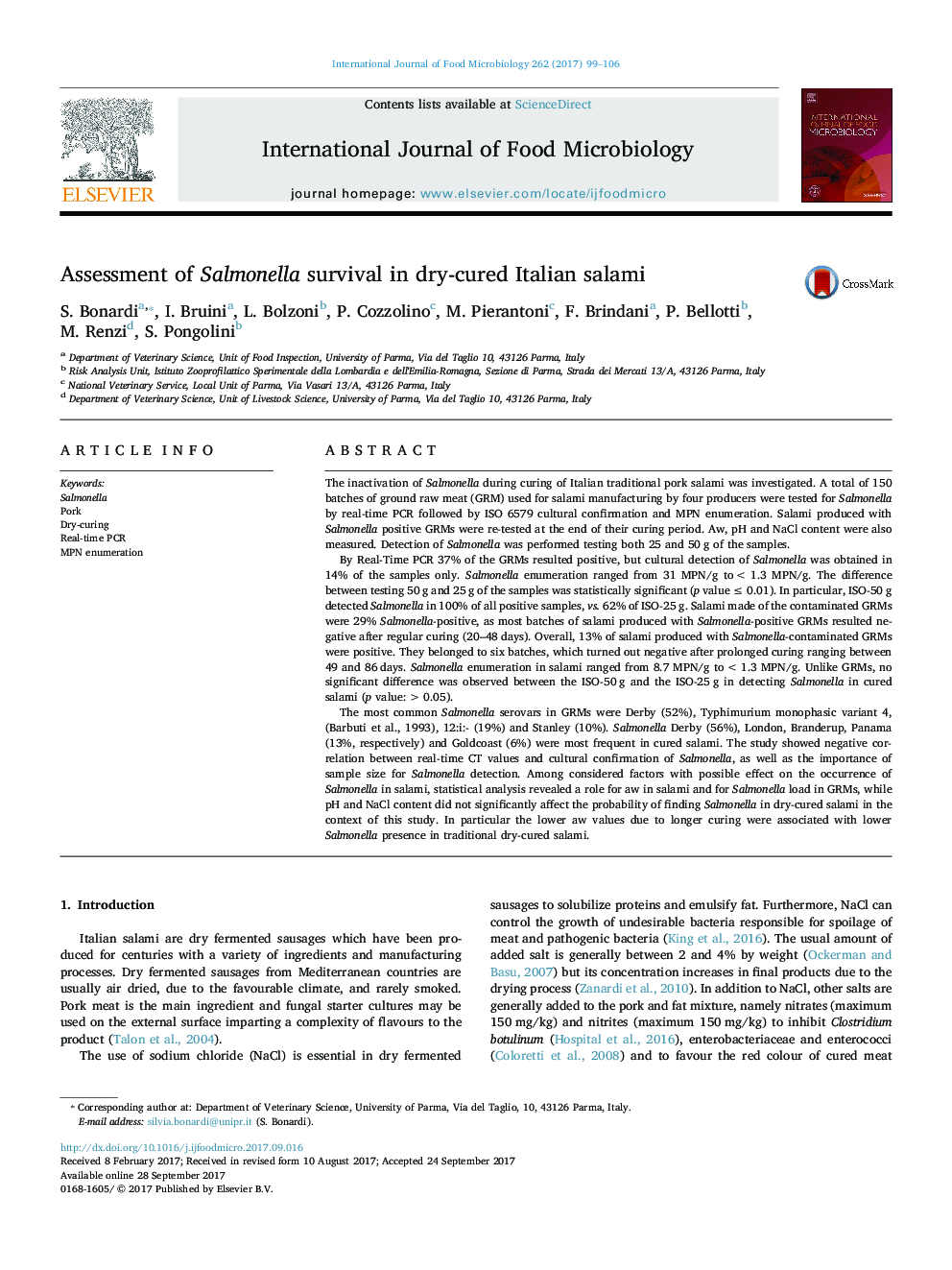| Article ID | Journal | Published Year | Pages | File Type |
|---|---|---|---|---|
| 5740598 | International Journal of Food Microbiology | 2017 | 8 Pages |
Abstract
The most common Salmonella serovars in GRMs were Derby (52%), Typhimurium monophasic variant 4, (Barbuti et al., 1993), 12:i:- (19%) and Stanley (10%). Salmonella Derby (56%), London, Branderup, Panama (13%, respectively) and Goldcoast (6%) were most frequent in cured salami. The study showed negative correlation between real-time CT values and cultural confirmation of Salmonella, as well as the importance of sample size for Salmonella detection. Among considered factors with possible effect on the occurrence of Salmonella in salami, statistical analysis revealed a role for aw in salami and for Salmonella load in GRMs, while pH and NaCl content did not significantly affect the probability of finding Salmonella in dry-cured salami in the context of this study. In particular the lower aw values due to longer curing were associated with lower Salmonella presence in traditional dry-cured salami.
Related Topics
Life Sciences
Agricultural and Biological Sciences
Food Science
Authors
S. Bonardi, I. Bruini, L. Bolzoni, P. Cozzolino, M. Pierantoni, F. Brindani, P. Bellotti, M. Renzi, S. Pongolini,
